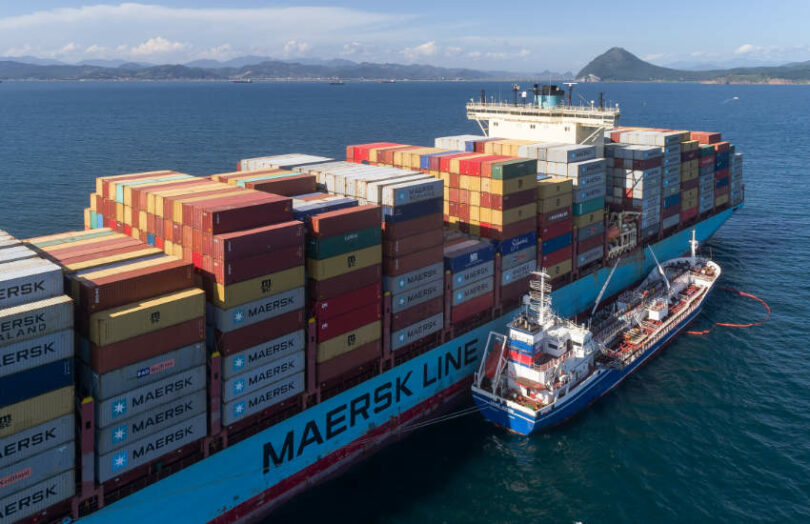Last week saw the first live international trade using the TradeTrust Framework, a blockchain paperless trade initiative spearheaded by Enterprise Singapore and Singapore’s tech authority IMDA. Maersk used the platform to issue an electronic bill of lading (eBL) on a public blockchain for a shipment of scrap metal. Singapore’s DBS Bank and India’s ICICI Bank relied on the eBL for trade finance.
IMDA claims that “this is the first shipment to undergo a fully paperless transaction process involving traders, shippers, and banks.”
eBLs are critical documents in trade finance because the organization that has the bill of lading effectively owns the cargo. Making bills of lading electronic prevents fraud when sending a paper based version via courier. And because it can be transmitted electronically, it’s much faster and cheaper.
“We are glad that with the demonstrated interoperability across platforms, traders can now get greater access to trade financing through more reliable trade documentation that meet the requirements of financial institutions,” said Enterprise Singapore Deputy CEO Tan Soon Kim.
How it works
To finance the payment for the shipment, the recipient of the scrap metal, Jindal Stainless secured a letter of credit (LC) from its bank, India’s ICICI.
Singaporean commodities firm Maptrasco sent the shipment from Miami to Gujarat and it partnered with DBS Bank to receive the proceeds from the letter of credit. So it transferred the eBL to DBS and DBS checked the eBL and supporting documentation before transferring ownership of the eBL to ICICI Bank.
ICICI Bank has its own blockchain platform, TradeChain powered by EdgeVerve, that it used to transfer the title of the eBL to Jindal Stainless. When the goods arrive in Gujarat, Jindal Stainless can hand over the eBL to Maersk to take control of the cargo.
About TradeTrust and eBLs
TradeTrust has been in development for at least four years. Now the platform uses public blockchain with a choice of Ethereum or the lower cost Polygon. Public blockchains require cryptocurrencies to pay for gas fees, but TradeTrust service providers obfuscate this from corporates.
Numerous service providers have adopted the framework including Linklogis, BunkerChain and TradeGo eBL.
A key issue for electronic bills of lading (eBL) is that several proprietary solutions each have their own formats. That’s a problem because there are at least a dozen eBL platforms, and each trader, shipper and bank doesn’t want to have to integrate all 12. Hence the Digital Container Shipping Association (DCSA) is working on enabling interoperability, which is also a goal of TradeTrust.
In fact, the DCSA managed to get many of the biggest cargo shipping firms to commit to 100% eBL within ten years.
For insurance purposes, the International P&I Group members provide protection and indemnity (P&I) insurance for around 90% of the world’s ocean-going cargo by tonnage. So they specify which eBL platforms are approved, and to our knowledge, there are ten, but the list will likely continue to expand.






